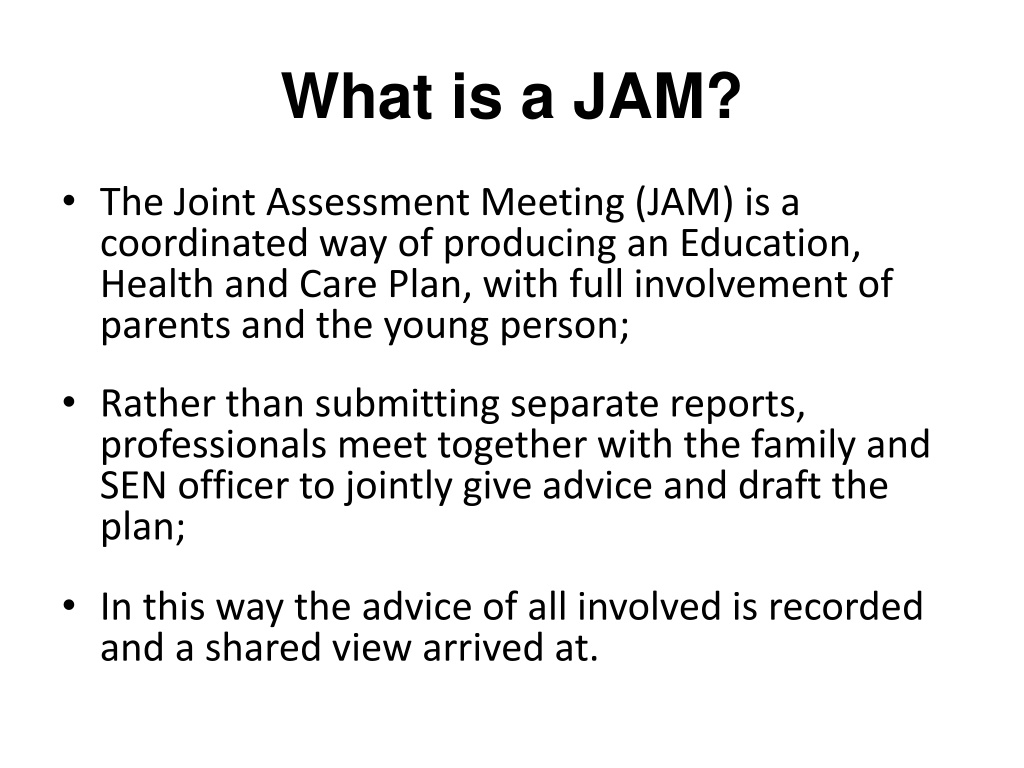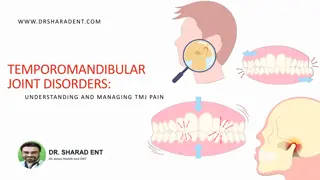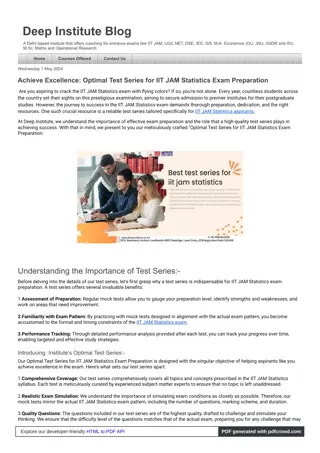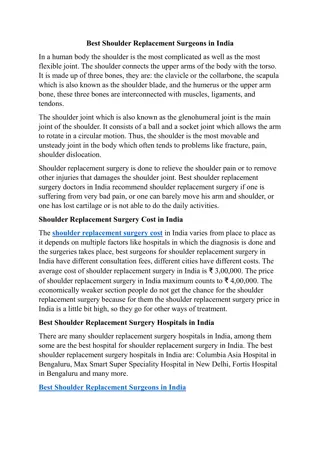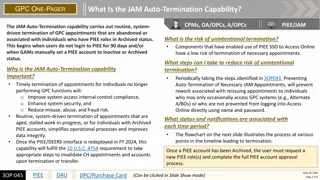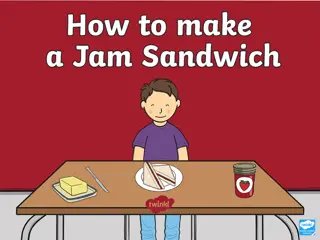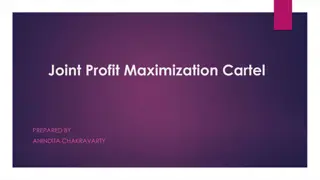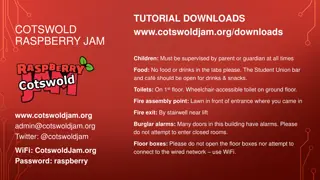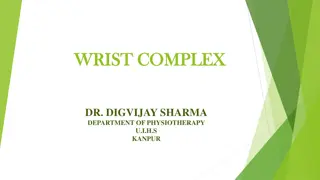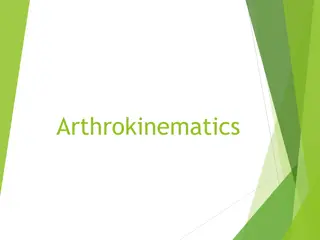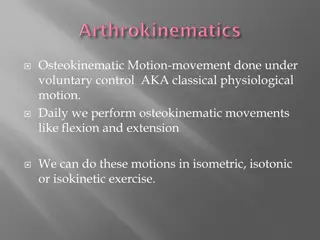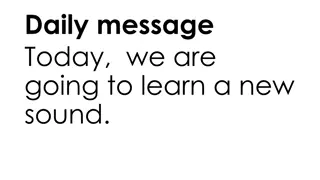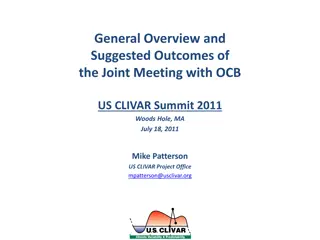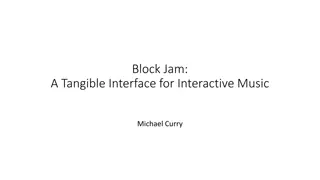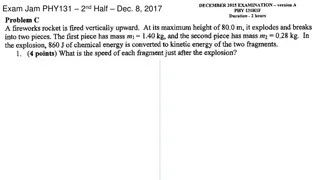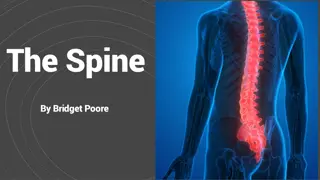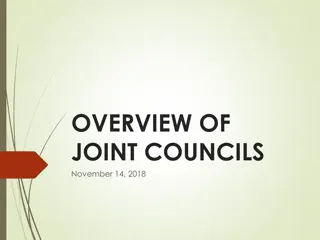Understanding the Joint Assessment Meeting (JAM) Process
The Joint Assessment Meeting (JAM) is a collaborative approach to developing an Education, Health, and Care Plan involving parents, professionals, and the young person. Through joint meetings, everyone's input is considered and a shared plan is created. Parental feedback indicates a positive experience with better understanding and involvement. The process ensures statutory compliance and addresses capacity issues. The JAM involves arranging meetings, preparing documents, providing advice, conducting assessments, and agreeing on assessments leading to possible outcomes like an EHCP.
Download Presentation

Please find below an Image/Link to download the presentation.
The content on the website is provided AS IS for your information and personal use only. It may not be sold, licensed, or shared on other websites without obtaining consent from the author. Download presentation by click this link. If you encounter any issues during the download, it is possible that the publisher has removed the file from their server.
E N D
Presentation Transcript
What is a JAM? The Joint Assessment Meeting (JAM) is a coordinated way of producing an Education, Health and Care Plan, with full involvement of parents and the young person; Rather than submitting separate reports, professionals meet together with the family and SEN officer to jointly give advice and draft the plan; In this way the advice of all involved is recorded and a shared view arrived at.
Why JAM? Parental feedback on this way of working has been very positive, with parents reporting feeling involved and understanding the process better; It is in line with the CoP ethos of families having to tell their story only once ; It will address issues of statutory compliance; It will address capacity issues for EPs.
Joint Assessment Meeting (JAM) Before the JAM The Team will arrange the JAM with school and parents and invite all known professionals involved. The SEN Officer will prepare the EHCA document with all the advice they have received so far, including This Is Me .. The Educational Psychologist will observe the child on the morning of the JAM or sometimes before.
Advice givers role Carry out appropriate assessment to inform JAM (Record brief notes on EHCP summary sheet to guide discussion) Attend agreed JAM session Contribute to multi agency discussion of needs / outcomes Co chair meeting as required.
Agreeing to Assess When requesting an EHC Assessment the LA must assess if the child: has or may have SEND and it May be necessary for special educational provision to be put in place As such if a child needs anything over and above quality first teaching, a request for an EHC assessment cannot be refused. Using criteria such as must have an EP report or must have up to 16 hours support is unlawful.
EHC Assessment not EHC Plan Agreeing to assess does not mean that a plan will be issued; The possible outcomes are: Assessment indicates needs can be met from existing school resources My Support Plan issued Assessment indicates additional resource (over and above Elements 1 & 2) required EHCP issued.
Explaining process At the start of the meeting the SENOf will explain: Why the meeting is taking place - That the referrer felt that the child has additional needs that cannot be met from school s existing resources. What the end result of the assessment may be - Either an additional needs plan, or an EHCP. An EHCP is a legal document and forms an agreement between the LA and the school. It should clearly identify the additional provision needed to meet the child s needs and will give additional funding to achieve this.
Terminology Needs - The child s strengths, what they can do, what they are starting to do, their barriers to learning. Aspirations - What parents want for their children. Outcomes - What are the first milestones towards the aspirations (usually end of Key Stage) Provision - What do we need to have in place for the outcomes to be achieved.
Meeting Format The format of the meeting - (The EHCA doc will be viewed with a projector and managed by SENOf) Introductions - (SENOf will record these in Section K) Check Parent s details Check through This Is Me . Explore parents aspirations for their child.
Areas of Need For each of the four areas of need, we discuss, identify and record Needs, Outcomes and Provision, i.e. Cognition & Learning - Needs, Outcomes, Provision. Communication & Interaction - Needs, Outcomes, Provision. Social & Emotional - Needs, Outcomes, Provision. Physical & Medical - Needs, Outcomes, Provision.
Areas of Need Needs The child s strengths, what they can do, what they are starting to do, their barriers to learning. Outcomes A range of outcomes over varying timescales, covering education, health and care Should be SMART. Provision must be specified for each and every need. It should be clear how the provision will support achievement of the outcomes Must be detailed and specific and should normally be quantified, for example, in terms of the type, hours and frequency of support and level of expertise. Identify any appropriate facilities and equipment, staffing arrangements and curriculum Identify any appropriate modifications to the curriculum.
What Next The SENOf will then ask advice from those attending meeting whether provision identified is sufficient to meet the child s needs and whether all provision is necessary. If the provision is less than 16 hours a MSP will be issued not an EHCP. SENof will explain to parents what happens next... If further advice is outstanding, then the team will chase this up and then the SENOf will integrate this with advice gained at the meeting. The EHCA will then be taken to a Panel. The Panel will advise whether the provision can be met from within school s existing resources or whether a Plan will be put in place and, if so, what funding range the Plan will be allocated. If an EHCP is necessary it will then be sent out as a Draft: Asking parents to agree the contents of the plan and express a preference of school Consulting parents preferred school if they are able to meet the needs of the child. Attendees are thanked for coming and the meeting is brought to a close
Making it work District wide work on My Support Plan to embed graduated approach; Key message about EHC will only be issued if needs require over and above resources normally available; Possible funding of MSP
